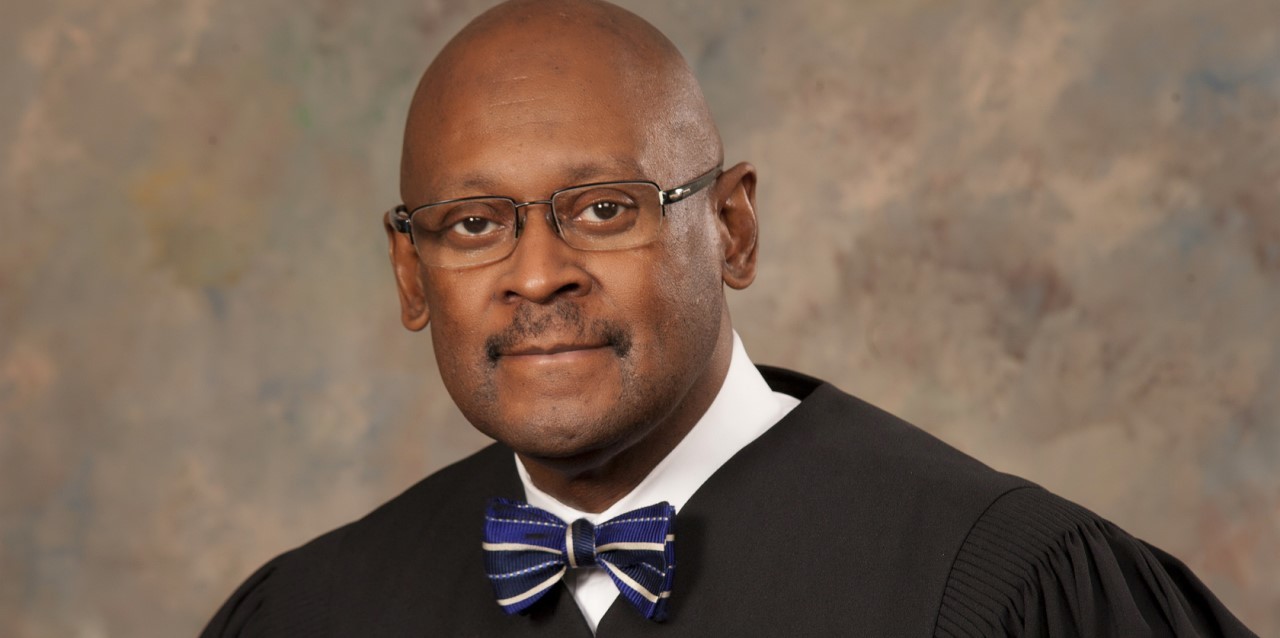CHICAGO — A split Illinois Supreme Court decision will allow disciplined and fired Cook County correctional officers to continue their lawsuits against Cook County Sheriff Tom Dart, potentially requiring them to possibly even get their jobs back, as the officers argued they had been improperly disciplined because the review board that meted out the discipline wasn't legally seated.
Justice P. Scott Neville wrote the majority opinion issued Oct. 22; Chief Justice Anne Burke and justices Thomas Kilbride and Lloyd Karmeier concurred. Justice Michael Burke wrote a dissenting opinion, joined by Justices Rita Garman and Mary Jane Theis.
Kilbride and Neville are each on the ballot this year. Voters in Illinois' Third Appellate District, which includes Will County and a large swath of central and west central Illinois, are being asked whether to retain Kilbride for another 10 years on the state high court. He needs 60% approval to win another term.

Cook County Sheriff Tom Dart
| Youtube screenshot
Neville is running unopposed in Cook County for his first elected full 10 year term.
The Cook County Sheriff’s Merit Board hears disciplinary cases when the sheriff seeks to impose a punishment greater than a 30-day suspension. The board can uphold or dismiss the charges or reduce the recommended penalty. In May 2017, a three-justice panel of the Illinois First District Appellate Court in Chicago determined Merit Board member John R. Rosales was not validly appointed to the board when the Merit Board agreed to fire sheriff's office employee Percy Taylor and overturned Taylor's termination.
That decision triggered a swath of similar lawsuits.
In its Oct. 22 opinion, the Illinois Supreme Court addressed the complaint of officers Matthew Goral, Kevin Badon, Michael Mendez, Milan Stojkovic, David Evans III, Frank Donis and Lashon Shaffer. Dart asked the Merit Board to fire them for such alleged misconduct as false overtime reporting; detainee abuse; interference with an FBI investigation into detainee abuse; and interference with a domestic abuse investigation.
Although Cook County Circuit Judge Sophia Hall dismissed the officers’ complaint in July 2018, a First District Appellate Court reversed that ruling in June 2019, also determining the officers could proceed with claims for back pay.
In this case and similar actions, the officers asserted Dart improperly appointed board members to interim terms, and not staggered, six-year terms as required by law. Though a December 2017 state law reorganized the Merit Board in an attempt to correct the membership irregularities — and Dart moved to reintroduce cases before the new board — the officers argued the change doesn’t remedy preceding actions.
The state Supreme Court majority rejected the county’s argument that the Merit Board should retain jurisdiction concerning challenges to its composition as opposed to an appellate court. Because the challenge is to the board’s inherent power and authority, Neville wrote, judicial review is appropriate. He also said a circuit court is allowed to consider back pay questions.
Neville further wrote the Merit Board members’ expertise in matters of officer discipline is irrelevant to determining the validity of the board itself, and said there’s no indication the majority opinion would lead to widespread challenges of other agencies’ statutory authority. Should any arise, he added, Illinois Rule of Professional Conduct prohibitions on frivolous lawsuits would be an adequate safeguard.
“The Merit Board is not vested with the authority to make its own appointments,” Neville wrote. “There is nothing in the statutory language to suggest that the legislature intended for the Merit Board to make decisions regarding its own members’ appointments or its composition.”
The county defendants also said the so-called “de factor officer” doctrine should defeat the officers’ claims, seeking protection for Merit Board decisions issued before the judicial finding of improper constitution. "De facto officer" is a legal doctrine which can be used to uphold the decisions of a government agent, even though that agent's appointment or election was later found to be deficient.
“Timing matters,” Neville wrote.
He said the majority believed these plaintiffs challenged the board’s constitution before it took substantive action on their discipline, not to try to belatedly undermine administrative action.
Further, Neville said, the plaintiffs didn’t seek to have Merit Board members removed. They only sought to have their hearings proceed under a properly constituted board.
The majority remanded the complaint to Cook County court for further proceedings.
In his dissent, Michael Burke wrote that the Supreme Court “faithfully and consistently” applied the de facto doctrine for more than 150 years until 2002’s “fractured decision in Daniels v. Industrial Commission” and similar proceedings. Michael Burke noted the Illinois Attorney General and city of Chicago filed amicus briefs to support a “return to the traditional understanding of the de facto officer doctrine,” a position he found agreeable.
“The majority is simply wrong when it states that any actions of the Merit Board would be void if it was improperly constituted,” he wrote.
Michael Burke pointed to U.S. Supreme Court explanations of the de facto doctrine guarding against a flurry of lawsuits challenging every action taken by any official or board found to be improperly seated. He said the proper way to negate authority is a so-called quo warranto removal action - which challenges the right of a government officer to take action. Michael Burke noted this wasn’t the officers’ strategy, as the majority noted.
Michael Burke also said the officers failed to show how the Merit Board exceeded its statutory authority because it only attempted to conduct a disciplinary hearing. He added the majority failed to explain how a challenge to the board’s composition also is a challenge to its jurisdiction.
The officers have been represented in the action by attorneys Christopher Cooper and Cass Casper, of Chicago.
The Sheriff's Office has been represented by attorneys Stephanie A. Scharf and George Sax, with the firm of Sharf Banks Marmor, of Chicago. The Merit Board and Cook County were represented by the Cook County State's Attorney's Office.
